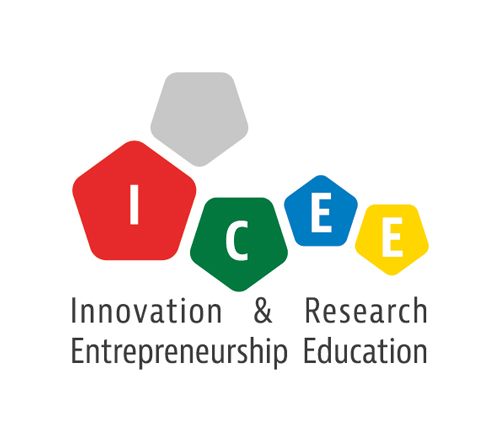News

ICEE Progression Model: From the Entrepreneurship Competence Framework (EntreComp) to Real Practice in Schools
18 April 2018When a school moves into entrepreneurship education, they need to consider several factors: National priorities and plans meet local curricula and subject plans. Progression has to be secured by planning on what to do in different age groups, and how to merge local subject curricula with different tools and methods.
In the process, the schools have to identify need for training and which assessment tools they will use to measure progress.
Download here the progression model
A progression model is meant to be a guide to schools. It has to be interpreted into the national or local curriculum and local environment and met by initiatives, tools and methods which can support the overarching goals in the model. The Innovation Cluster for Entrepreneurship Education (ICEE), aimed to analyse the impact of entrepreneurship education and understand what is needed to increase the penetration of entrepreneurship education in European schools. Starting from an analysis of existing national strategies, the project came up with suggestions on how entrepreneurship education can flow from primary to upper secondary in a ‘progression model’, linked to content and tools and approaches to teacher training and assessment. 25 schools in 5 countries participated in cooperation with Ministries, three research institutes and five national JA organizations. Teachers and headmasters from 60 European entrepreneurial schools gave input through three workshops, and experts in the European Entrepreneurship Education NETwork (EE-HUB) were consulted.
The ICEE Progression Model suggests a template for visualizing activities used in entrepreneurial learning on different stages in the educational system. The template can help teachers, teacher training institutions and NGOs to understand how to work with and progress in a complicated framework.
The Entrepreneurship Competence Framework, also known as EntreComp, offers a tool to improve the entrepreneurial capacity of European citizens and organisations. The framework defines 3 competence areas, a list of 15 competences, 442 learning outcomes and proficiency levels. The EntreComp aims to become a reference framework for how to foster entrepreneurial capacity of European citizens. It consists of 3 interrelated and interconnected competence areas: ‘Ideas and opportunities’, ‘Resources’ and ‘Into Action’. Each of the areas is made up of 5 competences, which, together, constitute the building blocks of entrepreneurship as a competence. The framework develops the 15 competences along an 8-level progression model and proposes a comprehensive list of 442 learning outcomes.
 The EntreComp framework is the reference in ICEE, but as the focus of EntreComp is European citizens in general, the ICEE project focuses on education from primary through higher education. Based on knowledge from the ICEE project, learning from the EE-HUB and entrepreneurial schools, the partners developed a progression model, showing how a young person’s entrepreneurial learning journey can be gradual, with new experiences reinforcing previous learning and challenging them on to the next stage of development.
The EntreComp framework is the reference in ICEE, but as the focus of EntreComp is European citizens in general, the ICEE project focuses on education from primary through higher education. Based on knowledge from the ICEE project, learning from the EE-HUB and entrepreneurial schools, the partners developed a progression model, showing how a young person’s entrepreneurial learning journey can be gradual, with new experiences reinforcing previous learning and challenging them on to the next stage of development.
The implementation in each school starts with the teachers and, behind them, the leadership of the school. Political decisions are important to open doors and increase awareness but each school has to find its DNA and recipe for success. The ICEE project analysed several best practices, interviewed teachers, leaders, students and parents in five countries in order to understand how entrepreneurial learning best can be implemented in a school. The ICEE progression combines suggestions for how to work with local subject curricula and how to analyse selected tools and methods in the wider entrepreneurship framework and at the same time connect them to the local subject curricula.
Several drivers and hindrances to successful implementation of entrepreneurship education were identified in the Innovation Cluster on Entrepreneurship Education. (ICEE).
The main obstacles seem to be connected to competence among teachers and lack of good-quality teacher training and support. A second hindrance was the lack of cooperation between the formal education system and the labour market. Among the drivers to increasing uptake of entrepreneurship education was that the majority of all relevant groups in the research in the ICEE (students, teachers, business people and parents) believe in the importance of entrepreneurial learning and that entrepreneurship should be embedded in school policies/curricula. They also considered the teaching methods as effective and academically credible. If the leadership in a school is dedicated to entrepreneurship education, the incentives are strong to get it implemented. Head teachers in the ICEE reported several learning outcomes they could see for students, such as teamwork or personal growth and they found that many teachers were enthusiastic and that student-teacher relations improved.
Additional documents and templates can be found on the ICEE web site: www.icee-eu.eu .
This web site also links to:


 ICEE project has been funded with support from the European Commission, Erasmus+ Programme. This website reflects only the views of the author, and the Commission cannot be held responsible for any use which may be made of the information contained therein.
ICEE project has been funded with support from the European Commission, Erasmus+ Programme. This website reflects only the views of the author, and the Commission cannot be held responsible for any use which may be made of the information contained therein.